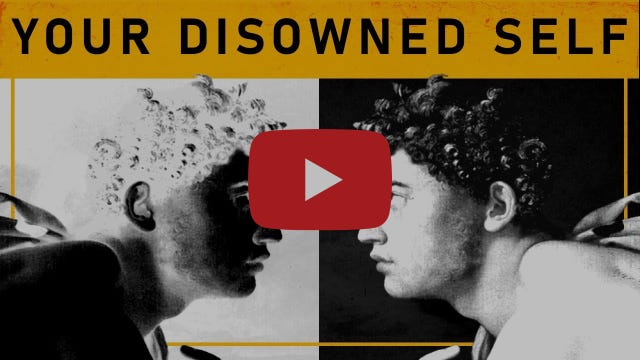In its enthusiasm for the divine light, Christian theology has not always done justice to the divine darkness…
[W]e try to live up to the standards of a God that is purely light and we can’t handle the darkness within us. And because we can’t handle it, we suppress it. But the more we suppress it, the more it leads its own life, because it’s not integrated.
You can get out of that trap if you come back to the core of the Christian tradition, to the real message of Jesus…
Jesus talks of our Father in heaven who lets the sun shine on the good and the bad, and lets the rain fall on the just and the unjust alike. It’s both the rain and the sun, not only the sun. And it’s both the just and the unjust. Jesus stresses the fact that God obviously allows the interplay of shadow and light. God approves of it…
[Jesus] dies, crying out, “My God, why have you forsaken me?” At that moment darkness covers the whole earth, which is, of course, a poetic statement, not necessarily an historic account of what happened then.
At that moment God reaches the greatest distance from God’s own being and embraces the darkness of utmost alienation. If God’s reality can embrace the one who cries out, “My God, why have you forsaken me?” and is, for all practical purposes, forsaken of God, and dies, then everything is embraced—death and life and every tension between them.
And that moment is, according to the Gospel of John, not the prelude to the resurrection, not something that is then reversed by the resurrection, but is the resurrection.
Jesus says earlier, “When I am lifted up from the earth, I shall draw all things to myself.” According to the theology of the Gospel of John, the lifting up is the lifting up on the cross. His death on the cross is the moment of his glory.
It’s an upside-down glory. It’s the ultimate shame for someone to be executed on the cross. But for the eyes of faith Jesus is “lifted up.” That is the resurrection. That is the ascension…
Luther stressed a key conviction of the New Testament with which the Catholic Church is only now catching up; that is, “by grace you have been saved.”
That’s one of the earliest insights in the Christian tradition: it’s not by what you do that you earn God’s love… Not by doing something, not by your works, but gratis you have been saved. That means you belong. God has taken you in.
God embraces you as you are—shadow and light, everything. God embraces it, by grace. And it has already happened…
St. Paul, who says, “By grace you have been saved,” encourages us in the next chapter, “Now live worthy of so great a gift.”
That’s a totally different thing, however, from trying to earn it. Many Christians struggle to earn the great gift.
How can you earn a gift?
—Brother David Steindl-Rast in Meeting the Shadow
May we honor the gift,
Simeon
Psychology of Shadow Projection
In this clip, we explore the psychological shadow—those hidden parts of ourselves we deny and project onto others. The video explains how shadow work can lead to greater self-awareness and why integrating the shadow is vital for true personal transformation.



